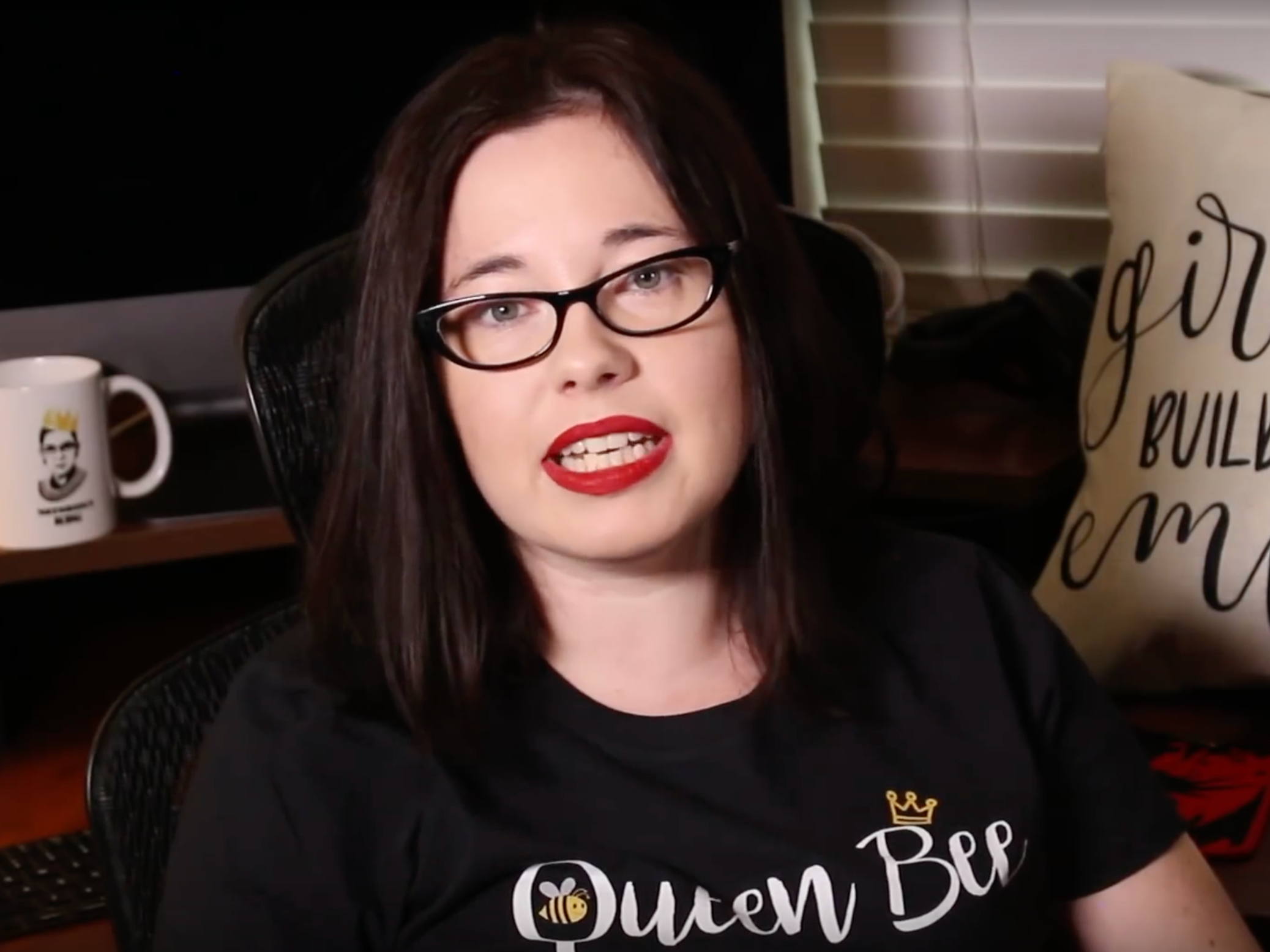- Lindsay Ellis, a film critic and YouTube creator, is fighting a copyright claim placed on her channel by Universal Music Group that she said put one of her sponsorships in jeopardy.
- UMG made a copyright claim on her video, titled “Woke Disney,” where she critiques Disney songs.
- The way YouTube dealt with the claim was by allowing UMG to put ads on her video and earn revenue from them, which was against the terms of her contract with her brand sponsor Audible, she said.
- Ellis contended that her video was “an extremely clear-cut example of fair use,” a part of US law that allows limited use of copyrighted material without permission, often in cases like criticism.
- But YouTube’s policy of considering a claim “valid” when its software detects the presence of copyrighted material, like a song clip, hurts creators like her, she said.
- “YouTube claims to care about and to uphold [fair use], but functionally they do not,” she said.
- Visit Business Insider’s home page for more stories.
The latest public fight between a YouTube creator, a media giant, and the platform itself shows how complicated the creator business has become in 2019.
The film critic and YouTuber Lindsay Ellis (835,000 subscribers) is fighting a copyright claim placed on her YouTube channel by Universal Music Group that she said put one of her brand sponsorships in jeopardy.
UMG made a copyright claim on Ellis’ video “Woke Disney” (1.5 million views) because she used a clip of the song “Song of the Roustabouts,” she said.
Instead of taking down a video after a copyright claim, YouTube’s system allows content owners, like UMG, to make a claim against a video and receive any AdSense revenue earned by it while allowing the creator to keep the video up.
That's what happened in Ellis' case, and that's where it gets complicated.
Before UMG made the claim, Ellis' video wasn't running ads. There's a reason for that: The video contains a sponsorship with the audiobook platform Audible, and her contract said there couldn't be other in-video ads on it. That meant that when YouTube put ads on the video (whose revenue went to UMG), it put her in violation of her contract, she said.
"It's not just the loss of income; it's a contract in breach," Ellis told Business Insider.
Ellis said that for many sponsorships on YouTube, creators will agree to turn off AdSense (revenue earned through in-video ads) on videos. But YouTube allows those who "claim" a video through a copyright claim, like UMG, the option to turn back on video ads, even though the creator had selected for them to be turned off.
She said Audible didn't break her contract or sue her, but she did receive a letter from the brand questioning why the video now contains ads.
YouTube says 'the claim is valid'
The heart of Ellis' disagreement with YouTube and UMG is whether the copyright claim against her video is valid.
In the video, Ellis plays a portion of the song "Song of the Roustabouts" from the Disney film "Dumbo," and in a voice-over, she breaks down the lyrics of the song and notes certain historical stereotypes within the lyrics.
Ellis said her use of the clip was protected under "fair use," a part of US law that allows the limited use of copyrighted material without permission and often applies to cases like criticism of a work.
"It was such a clear-cut case of fair use, which YouTube claims to care about and to uphold, but functionally they do not," Ellis said.
YouTube, for its part, said that UMG's claim was "valid."
"Our Copyright team looked into this and confirmed that the claim is valid," YouTube wrote on Twitter in response to Ellis. "We see that you've appealed the claim, which provides UMG with 30 days to review your appeal. If you would like to resolve the issue directly with them, please DM us for more info."
When YouTube says a copyright claim is "valid," that is usually determined by its software detecting copyrighted material in the video - in this instance, the clip. It doesn't account for things like fair use and lets the parties themselves - in this case, Ellis and UMG - resolve that type of dispute.
But in doing so, it favors the copyright holder, Ellis said. Even though there has been no legal action against her by UMG, YouTube has put ads in her video, with the revenue from them going to UMG.
And though Ellis hasn't yet heard back from YouTube or UMG on her appeal, her contract with Audible has already been put in jeopardy.
For more on the business of influencers, according to YouTube and Instagram stars, check out these Business Insider Prime posts:
- YouTube creator Natalie Barbu breaks down how much money she earns from a video with 100,000 views: Natalie Barbu, a social-media influencer and YouTube creator with 227,000 subscribers, shared how much money she earns from a video with 100,000 views.
- An Instagram influencer breaks down how much brands pay for sponsored posts, starting at 10,000 followers: The social-media influencer Jehava Brown spoke with Business Insider about how she determines her rates when negotiating with companies like Disney and Walmart.
- YouTube star Shelby Church breaks down how much money a video with 4 million views made her: The YouTube creator Shelby Church, who has 1.3 million subscribers, broke down how much she earned in Google AdSense from a video with 4 million views.
